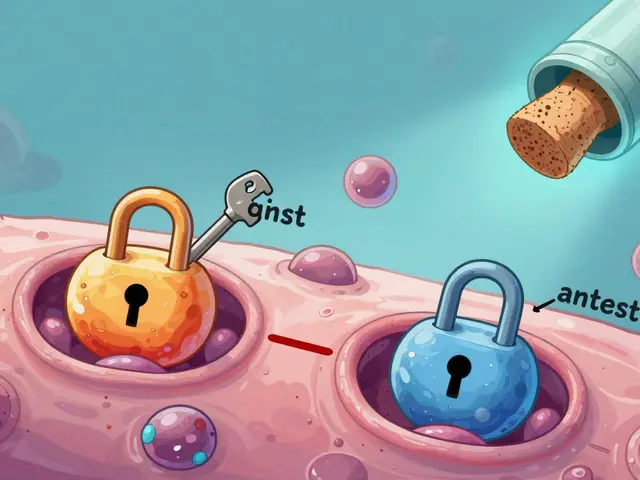Acne Causes: What Really Triggers Breakouts and How to Fix Them
When you get a pimple, it’s easy to blame your diet or not washing your face enough—but the truth is deeper. Acne, a common skin condition caused by blocked hair follicles and excess oil production. Also known as acne vulgaris, it’s not just a teenage problem—it affects adults too, often for reasons no one talks about. The real acne causes are a mix of biology, environment, and lifestyle, and most over-the-counter fixes ignore the root problem.
One major player is hormonal acne, breakouts triggered by shifts in androgen levels, especially around periods, stress, or menopause. When testosterone or other androgens spike, your skin’s oil glands go into overdrive. That extra sebum production, the oily substance your skin makes to protect itself mixes with dead skin cells and clogs pores. It’s not dirt—it’s biology. And once that pore is blocked, bacteria like Cutibacterium acnes thrive, turning a simple clog into a red, swollen bump.
But hormones aren’t the only culprit. clogged pores, the starting point of most acne lesions can also come from heavy makeup, oily hair products, or even tight clothing rubbing against your skin. Then there’s skin inflammation, the body’s overreaction that turns a minor blockage into a painful, visible breakout. This is why some people break out badly after stress—even if they’re eating clean and washing their face twice a day. Inflammation doesn’t care about your skincare routine; it responds to internal triggers like sleep loss, anxiety, or even dairy.
Most acne treatments focus on killing bacteria or drying out skin, but if you don’t fix the cause, the breakouts come back. That’s why some people use retinoids for months and still get flare-ups—their hormones or inflammation aren’t being addressed. Others swear off chocolate and suddenly clear up, but that’s not the whole story. The link between diet and acne is real, but it’s not about sugar alone—it’s about how certain foods spike insulin, which then amps up androgens and sebum. It’s a chain reaction.
What you’ll find in the posts below isn’t a list of miracle cures. It’s a collection of real, science-backed insights into what triggers acne and how to stop it—for good. You’ll see how medications like spironolactone help hormonal acne, why some antibiotics make things worse long-term, and how stress and sleep directly impact your skin’s behavior. No fluff. No hype. Just what actually works, based on how your body really functions.

Nodular Acne in Teens: Causes, Treatments & Prevention Guide
Learn why teens develop nodular acne, how doctors treat it, and practical steps to prevent new breakouts and reduce scarring.
read more




